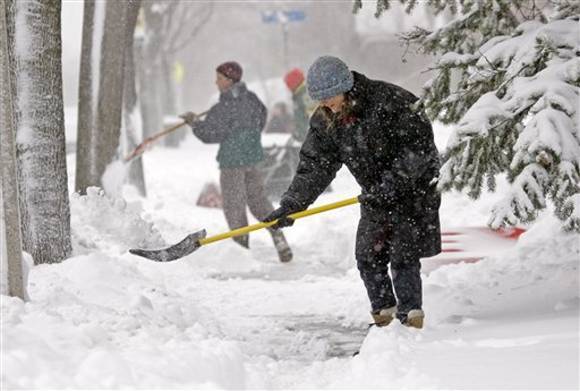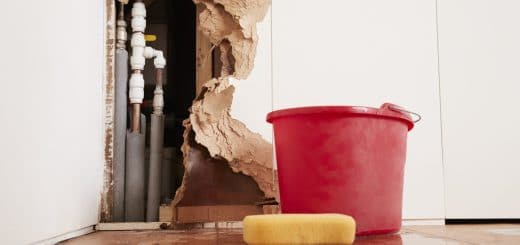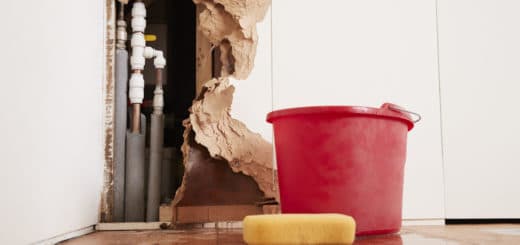How to Clean Glass Shower Doors with Hard Water Stains
Even with regular cleaning, glass shower doors can still be affected by moisture, residueResidue is any leftover material, such as soot, dust, or che... More, and stubborn hard water stains. The primary issue lies in the spots that affect the clarity of the shower glass, predominantly caused by hard water stains or limescale, which leave a chalky residueResidue is any leftover material, such as soot, dust, or che... More. This occurs as water evaporates, leaving limescale behind on glass, tiles, and fixtures, resulting in crusty deposits that shift in color from white to green.
Neglecting hard water stains can leadLead is a heavy metal that can be toxic to humans, especiall... More to considerable difficulty in removing them later, as the longer they are left, the more they build up. Therefore, it’s crucial to clean your glass shower doors bi-weekly using a DIY solutionA solution is a homogeneous mixture of two or more substance... More crafted from common household ingredients found in your pantry. This proactive approach prevents the accumulation of stains and maintains the pristine condition of your shower doors.
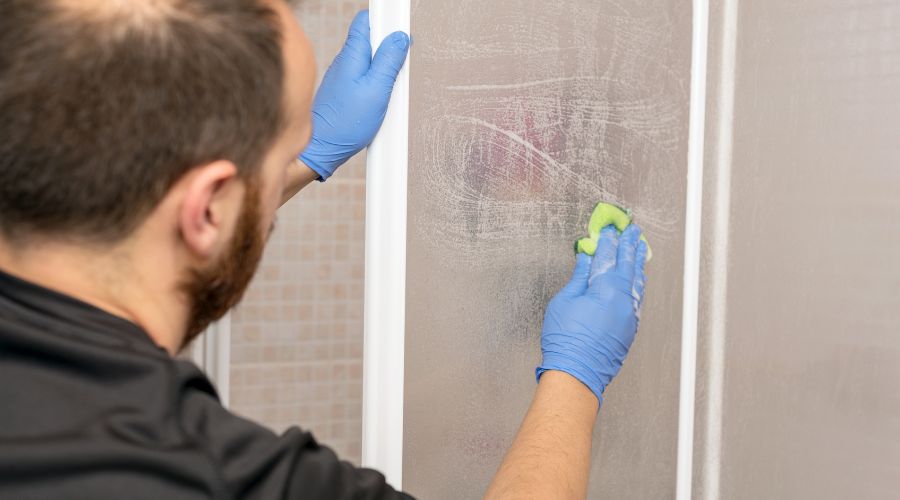
Cleaning Water Stains from Your Shower
Regularly removing water stains from your shower is crucial to prevent the accumulation of limescale. Most hard water stains can be effectively cleaned using common pantry supplies like white vinegar and baking soda. We’ll detail all the necessary materials and the procedure to achieve this.
Materials needed:
- Gloves
- White vinegar
- Paper towels
- Spray bottle
- SpongeA sponge is a porous material used to absorb liquids or clea... More
- Baking soda
- Distilled water
- Microfiber cloth
Process of Cleaning Water Stains from Your Glass Shower Doors
Once you have gathered the materials needed, you can start cleaning your glass shower doors. You can follow these tips to ensure that you clean the shower doors effectively:
- Warm up white vinegar:
You will need to begin by warming up a large amount of white vinegar on your stove until it gets hot.
- Soak the glass in vinegar:
Start the cleaning process by dipping paper towels in the hot vinegar and sticking them to the shower glass. This will cause the mineral depositsMineral deposits are solid residues left behind when water e... More to loosen. The vinegar will need to sit for 30 to 60 minutes before you can remove the paper towels. The glass should stay wet during this step. You can achieve this by spraying the paper towels with a spray bottle filled with vinegar.
- Wipe the shower door:
When the 30 to 60 minutes have passed, put a large amount of baking soda on a rag or a spongeA sponge is a porous material used to absorb liquids or clea... More and then wipe the shower door gently. Do not scrub too hard because the baking soda is abrasive and can leave scratches on the shower door.
- Rinse she shower door with distilled water:
Make sure to rinse the vinegar and baking soda from the glass door with distilled water. At this point, the surface of the glass should be clean. However, if there is any limescale left, keep repeating the baking soda scrub until it is all gone. Finally, use a microfiber towel to dry the glass.
How to Get Rid of Persistent Stains on Glass Shower Doors
Vinegar usually works wonders when it comes to hard water stains on glass shower doors. However, if your hard water stains have been sitting for too long, you may need to use a lemon instead of vinegar. Just cut a lemon in half, dip it in salt, and scrub all the grime away. The lemon juice is acidic so it will eat away the soap and mineral build-up and the abrasiveness of the salt will help scrub it off so your glass shines. You can also spray some lemon juice on your glass shower door to help keep it spotless for longer.
How to Avoid Limescale Build-up on Glass Shower Doors
If your home is supplied with hard water, it can leadLead is a heavy metal that can be toxic to humans, especiall... More to the unsightly accumulation of limescale spots on your glass shower doors. Nevertheless, there are effective strategies to reduce this buildup. Below are several recommendations:
- Check the quality of your water:
If your water becomes harder than normal, limescale deposits may be even more difficult to remove. If you notice that your dishes and glasses have spots, you may need to check the quality of your home’s water. You can also invest in a water softener if your water is too hard.
- Wipe down the glass after use:
It is always best to prevent limescale build-up on your glass shower doors instead of allowing it to accumulate and cleaning it later. You can help prevent this build-up by wiping down the shower after every use. Using a squeegeeA squeegee is a tool with a flat rubber blade used to remove... More after showering makes it easy to wipe all the water away.
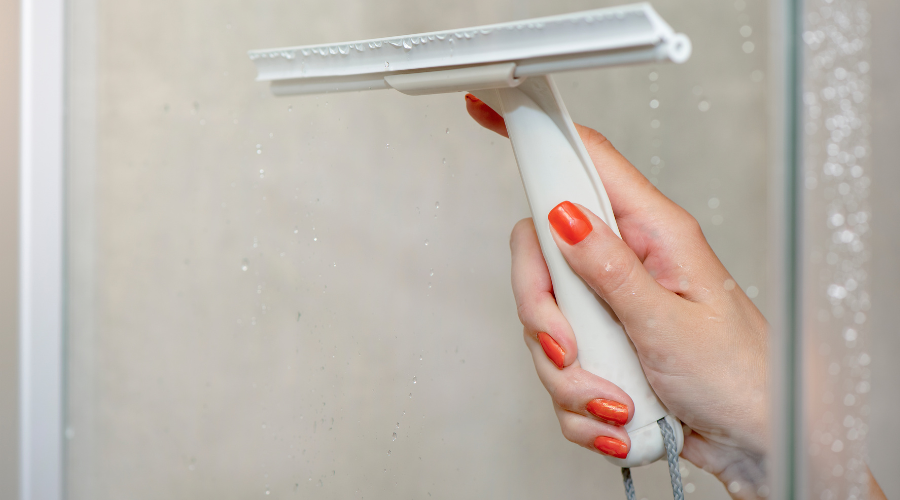
To prevent limescale from accumulating on your glass shower doors, prompt action is key. Allowing limescale to linger can leadLead is a heavy metal that can be toxic to humans, especiall... More to such significant buildup that it becomes challenging to remove, potentially necessitating professional cleaning services. It’s crucial to avoid using harsh chemicals for cleaning, as they can harm both the glass and your health. Instead, if homemade solutions like vinegar, baking soda, or lemon don’t work, consider enlisting professional cleaners. They have the necessary expertise, equipment, and techniques to effectively remove limescale from your shower doors. Additionally, they can offer advice on preventing future limescale accumulation, ensuring your glass doors remain pristine.
Professional Water Damage Restoration

If you’ve encountered water damage near your sink or shower, it’s crucial to immediately contact water damage restoration experts. These professionals are equipped with the necessary tools and technology to meet all your water mitigation requirements. They will meticulously clean, dry, and repairRepair is the act of fixing or restoring damaged property, m... More your property, quickly restoring it to its pre-damage condition. With their expertise, you can be confident in the quality of their work, as they are capable of managing any water damage situation. Their extensive training and advanced equipment ensure they can effectively address all your water damage restorationWater damage restoration is the professional process of clea... More needs.










